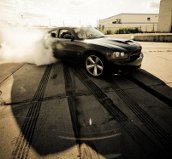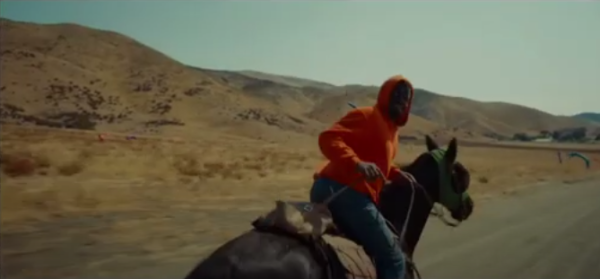The Influence of Performance Cars
Small, powerful sports cars are often a target for police looking to hand out speeding tickets, especially when they are being driven by high school students. Some may consider this unfair, but after interviewing several Pentucket seniors, the cops might be on to something. The question is; do performance vehicles influence people to drive faster or more dangerously?
Donovan Smith, a senior at Pentucket High School, seems to think they do. Donovan, who drives a very powerful 2012 Dodge Charger, confessed that speeding is often tempting if you have a car that can really move fast. “If it’s an open road, I’m tempted” said Donovan in his interview. However, he argued that driving fast when the road is completely clear is not dangerous. He says that he is not a danger to anyone when the streets are open and clear of cars and people.
Another senior at Pentucket, Josh Kemper, disagrees. He believes that at a certain speed, people will not see obstacles or potential hazards in time to react and bring the car to a stop. “They are putting themselves and others in danger.” Josh drives a 2006 Chevrolet HHR, which is not meant to be a sports car, unlike Donovan’s Charger. He says that even if he had a very fast performance car that it would not affect his driving style.
Donovan, however, thinks the car you drive does affect the way you behave on the road. In his interview, he said that if he drove a slower car that was not meant to get the driver from 0 to 60 in the fastest possible time, he would drive slower. He considers himself a moderately fast driver, but he wouldn’t be if his car was not built for speed.
Stephen Kolvek, a Pentucket senior who drives a 2001 Volkswagen Jetta VR6, says the type of car you drive does not affect your driving habits. He considers himself a safe driver, driving “3 to 5 miles per hour over the speed limit, because that’s what I was taught to do.” Stephen, whose car is more of a sports sedan, but still not slow, says that he is never tempted to drive dangerously. “You shouldn’t be the fastest car on the road, but if everyone on the highway is going 80 miles an hour and you’re going 55, you’re actually the one who is driving dangerously.” Stephen says that pacing yourself with the traffic around you is the safest way to drive. He says that matching the speed of other cars is the most effective way to keep everyone on the roads safe.
An interesting trend developed after several interviews. The general consensus seems to be that people with non-performance vehicles tend to drive slower, and they say that even if they had a fast car, they would not be tempted to drive dangerously. However, the students who do drive performance cars say that if they had a slower car, they would be less tempted to drive quickly. They say that if you have a performance vehicle, it is only a matter of time before you are tempted to really push that right pedal into the carpet.










Reid Garrant • Oct 17, 2013 at 10:32 pm
Great article! I agree that if someone has a performance vehicle that has the ability to accelerate faster than most cars, that the temptation is too great for most people not to give in to. I experience both aspects. My mom has a Mercedes CLK, and my step father has a Jeep Commander. Two polar opposites as far as cars go and I am definitely more tempted to drive faster in the Mercedes.
Sam Colombo • Oct 17, 2013 at 9:32 pm
Very interesting and well written.
Quintin B • Oct 17, 2013 at 9:11 pm
Hmm interesting topic, however I wouldn’t excuse most people who drive slower cars too not speed, for I have been riding in a lot of my friends “slower” cars and notice they do all speed. However, I do concur with the consensus of people with higher performance cars driving much faster, as I myself drive a 1994 saab 9000 aero (and would smoke Donovan’s charger in a race…European >>American cars), especially driving a standard, I can’t help but get a nice second gear pull up to 50-60 when turning on too a new street. Of course I am aware it is dangerous, but what am I supposed to do when packing more ponies and boost than most other people’s whips?
Kyle McDonald • Oct 17, 2013 at 5:36 pm
Really cool article
I think that if you have a performance car you will be tempted to drive faster
I know I would